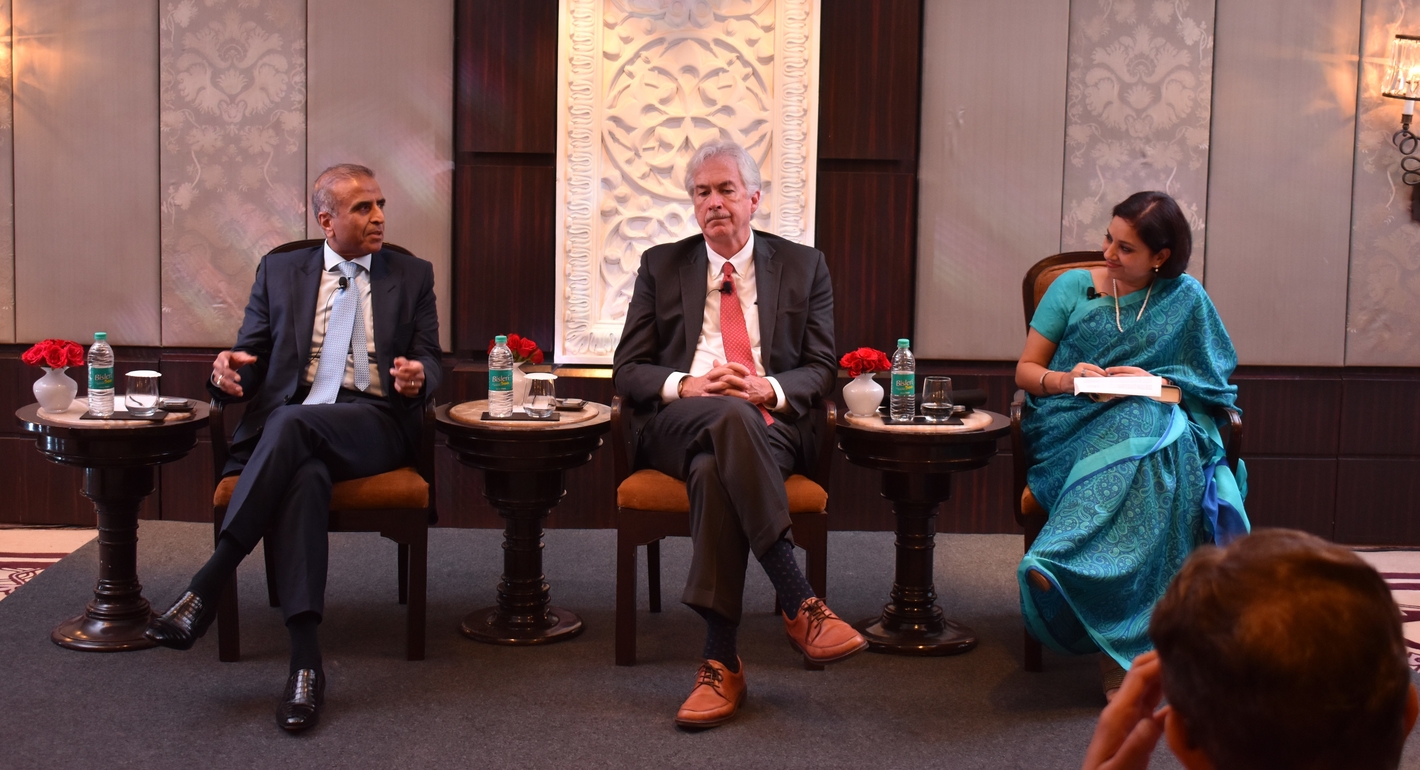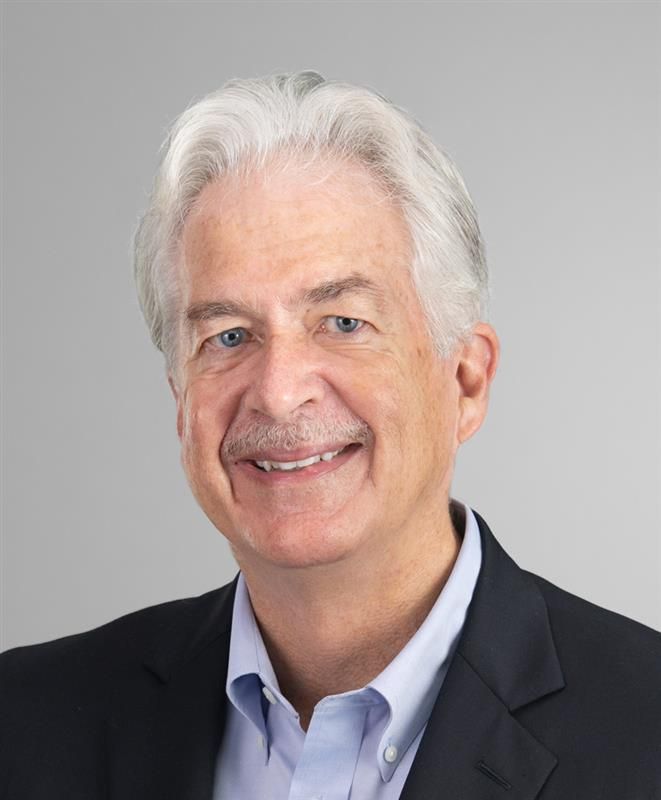{
"authors": [
"William J. Burns",
"Sunil Bharti Mittal",
"C.K. Birla",
"Suhasini Haidar"
],
"type": "event",
"centerAffiliationAll": "",
"centers": [
"Carnegie Endowment for International Peace",
"Carnegie India"
],
"collections": [],
"englishNewsletterAll": "",
"nonEnglishNewsletterAll": "",
"primaryCenter": "Carnegie India",
"programAffiliation": "",
"programs": [],
"projects": [
"Security Studies"
],
"regions": [
"United States",
"South Asia",
"India"
],
"topics": [
"Foreign Policy"
]
}
The Back Channel
Wed, November 13th, 2019
New Delhi
Since the end of the Cold War, the United States has emerged as the sole superpower in world politics. What role did American diplomacy have to play in its emergence as a great power? In his recent memoir, The Back Channel: A Memoir of American Diplomacy and the Case for its Renewal, Ambassador William J. Burns draws on a range of newly declassified cables and memos, providing readers with a rare inside look at American diplomacy in action.
Carnegie India hosted Ambassador William J. Burns for a discussion on his book, with Sunil Bharti Mittal, founder and chairman of Bharti Enterprises. C.K. Birla, chairman of the C.K. Birla Group, delivered the inaugural address. Suhasini Haidar, national editor and diplomatic affairs editor at the Hindu, moderated the discussion.
DISCUSSION HIGHLIGHTS
- The Importance of Diplomacy: Participants agreed that diplomacy should be the tool of first resort in international relations. Arguing that it aims to achieve the best possible outcome, they drew attention to how nuclear diplomacy with Iran under the Obama administration helped prevent Iran from acquiring nuclear weapons. Similarly, they highlighted, while President Trump’s approach may be unorthodox, diplomatic engagement with North Korea is important. Recognizing the importance of preserving complete denuclearization as an aspirational goal, participants suggested leveraging hard-nosed diplomacy to limit risks until then. Participants cautioned that political dysfunction and muscular unilateralism make it difficult to conduct diplomacy. They noted the underrepresentation of career diplomats in senior positions in the U.S. State Department and the recent fall in the applications to join the Department, and expressed concerns regarding the hollowing out of diplomacy as a tool for statecraft in an increasingly complex world. While participants concurred that military force can play an important role in backing up diplomatic efforts, they cautioned that its premature use has proven costly to the United States. Noting the changing nature of diplomacy in the digital age, participants argued, diplomats need to modernize their skillsets, enhance their understanding of issues related to technology, and be agile in the use of social media.
- Military Intervention: Participants highlighted that the United States felt compelled to adopt a harder stance following the 9/11 attacks. In doing so, participants recognized that the country overplayed its hand while intervening in countries such as Libya, assuming that restoration of order and democracy would be straightforward. Similarly, participants asserted, the expansion of the objectives driving U.S. intervention in Afghanistan, from counterterrorism to nation-building, has resulted in overreach. Conversely, they also warned that a rushed exit from the Afghan theatre could squander progress made toward human rights and result in the reemergence of Afghanistan as a platform from which terrorism can be exported abroad.
- U.S. Retrenchment: Participants argued that the United States suffers from political fatigue with regard to its continued military involvement in the Middle East today. They further maintained that, wrongly accused of disengaging from the region, President Obama had tried to shift the terms of engagement by emphasizing diplomacy over military action. Participants, however, stressed that disengaging at the diplomatic level by withdrawing from agreements could create vacuums that present an opportunity for regional competitors and other ambitious external powers. Participants highlighted the potential for the United States to play a constructive role in the region today, particularly given the political and humanitarian crisis in Yemen. Beyond the Middle East, participants emphasized that the United States should engage in active diplomacy and build security relationships with like-minded countries across the Indo-Pacific that share U.S. concerns regarding China, to shape the environment in which the latter rises.
- India-U.S. Relations: Looking back, participants highlighted, both countries faced difficulties in their bilateral relationship during the Cold War years. However, post-liberalization, both New Delhi and Washington have worked toward amicably settling their differences. Participants observed that prime ministers Atal Bihari Vajpayee and Manmohan Singh played crucial roles in bringing India and the U.S. closer during their tenures. They emphasized that the India-U.S. Civil Nuclear Deal, signed in 2005 during the Manmohan Singh regime, was a crucial turning point in the history of the bilateral relationship. However, the full potential of the deal is yet to be reaped, they added. Asserting that India and the United States are natural allies, participants cautioned that bellicose rhetoric has the potential to undermine the relationship. Recognizing differences around trade, they emphasized the importance of moderating expectations during negotiations.
This event summary was prepared by Raghuveer Nidumolu, Knowledge Transfer program coordinator at Carnegie India, and Sharanya Rajiv, senior program coordinator and research assistant at Carnegie India.
Carnegie does not take institutional positions on public policy issues; the views represented herein are those of the author(s) and do not necessarily reflect the views of Carnegie, its staff, or its trustees.
Event Speakers
A former career diplomat, William J. Burns served as director of the CIA, deputy secretary of State, and ambassador to Russia and Jordan. Burns was also president of the Carnegie Endowment for International Peace from 2015 to 2021.
Sunil Bharti Mittal
C.K. Birla
Suhasini Haidar
Suhasini Haidar is the national editor and diplomatic affairs editor of The Hindu, one of India’s oldest and most respected national dailies.
